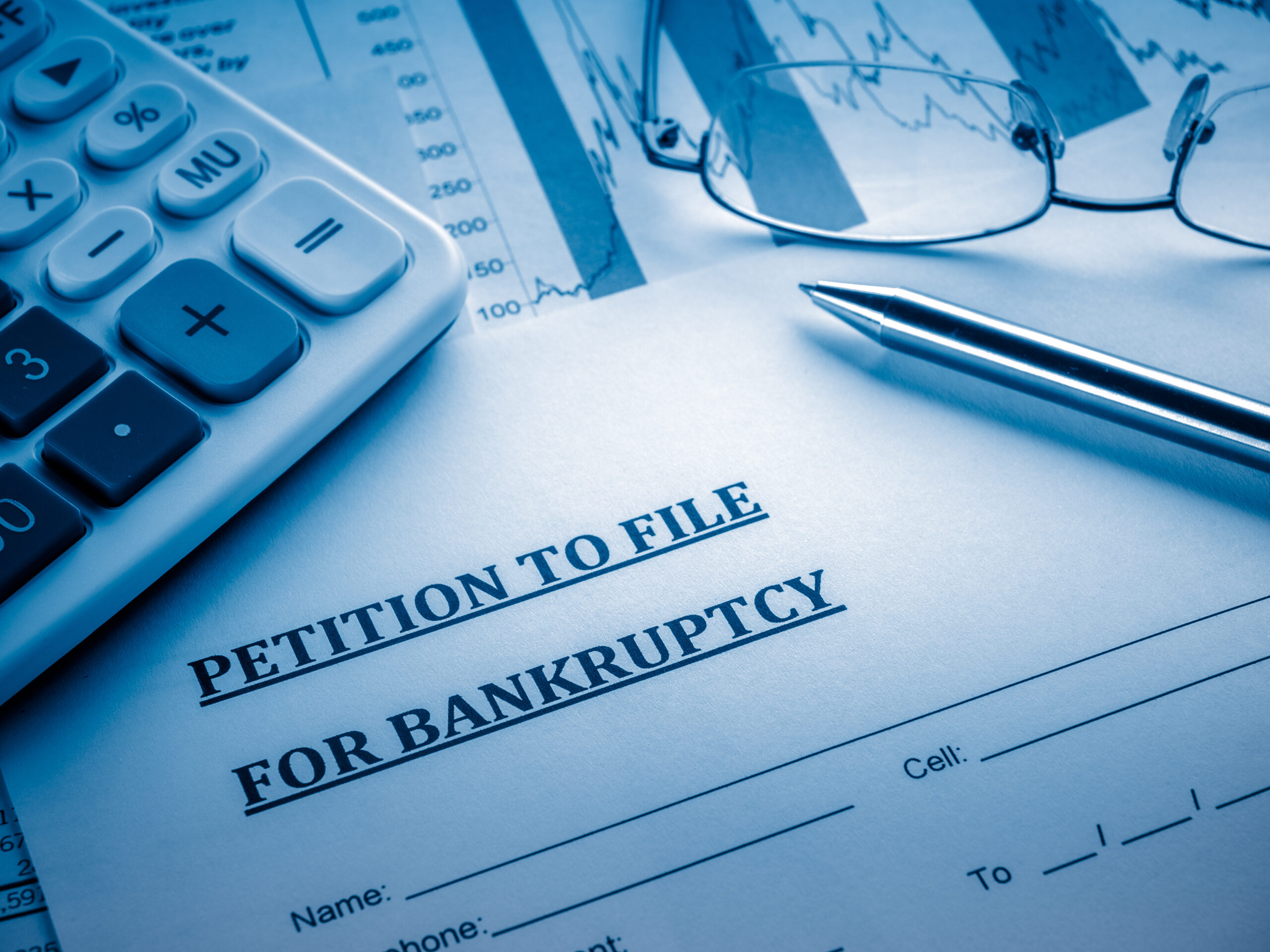People generally don’t like receiving a demand letter accusing their company of copyright infringement, and they especially don’t like it when a process server shows up to deliver a copy of a lawsuit that was filed against the company/themselves. I know… riveting news here. But what does one do when accused of copying/displaying a photograph or artwork without the copyright owner’s permission? We’ve covered the topic before, but generally, there are various options (assuming of course that the copyright owner is not mistaken) ranging from trying to amicably resolve the matter to burying your head in the proverbial sand. For purposes of today, however, I’d like to address one option that we frequently are threatened with yet rarely see followed through – the specter of filing a business bankruptcy.
You Received an Infringement Demand/Lawsuit from CopyCat Legal. Should You File Bankruptcy?
We here at CopyCat Legal are, to put it mildly, somewhat busy. We represent a multitude of talented artists/photographers who actively seek to protect their intellectual property, and that translates into sending a ‘few’ (ok, a lot) of demand letters and filing a couple (ok, perhaps many) lawsuits when an amicable settlement cannot be reached pre-suit. The law of numbers being what it is, we quite often hear (whether from an alleged infringer or an attorney acting on its behalf) that the business will just file bankruptcy to avoid further proceedings on our clients’ copyright infringement claims.

What does that really mean in simple terms? Is a business bankruptcy really a magic wand that solves all of your woes? If it is, why do so few businesses actually carry through with the threat to file? I’m no bankruptcy attorney (though I did stay at a Holiday Inn Express last night), but I’ll try my best to answer the questions (ok, I might have a ‘little’ bankruptcy experience having been one of the attorneys representing the Creditors’ Committee in the Lehman Brothers bankruptcy and worked on a few dozen other large bankruptcy matters).
For the most part, business bankruptcies fall into two categories – liquidation (Chapter 7) or reorganization (Chapter 11). There are other nuances, but basically, Chapter 7 is the death/end of a company while Chapter 11 allows the company to emerge and continue business when all is said and done. The ‘allure’ of a business bankruptcy is twofold: (a) the “automatic stay” which prohibits a creditor from continuing to pursue a lawsuit/collection efforts during the pendency of the bankruptcy and (b) the “discharge” of debts that essentially ‘erases’ various categories of debts if the debtor fully complies with its bankruptcy obligations/the court approves the plan of reorganization/liquidation. There are obviously tons of caveats here, but those are the basic reasons why someone such as yourself may be interested in exploring a business bankruptcy.
Erasing debts and stopping lawsuits sounds good to me, so I guess we all agree that bankruptcy really is the cure to all things copyright infringement… right? Not quite. We’ve handled a whole lot of cases and, to date, I can only think of one where someone actually filed bankruptcy after receiving a copyright infringement demand letter. That company was Free Speech Systems (owned by radio show host Alex Jones) and, in addition to being accused of copyright infringement, had just received a $1.5 billion judgment against it. Suffice to say, I suspect the company had bigger fish to fry than worry too much about our demand letter relating to a photograph.
So why is bankruptcy perhaps not the best idea to actually follow through on? For starters, bankruptcy like most things in life, isn’t free. If your company is a registered/existing business (limited liability company, corporation, etc.), it’s going to need to hire an attorney to file/pursue the bankruptcy… and most attorneys charge an hourly rate for their time.
How much does it actually cost? Cue my favorite lawyerly response… it depends. Generally, a Chapter 7 (liquidation) bankruptcy is less expensive than a Chapter 11 (reorganization), but the exact amount you will spend depends on a large number of factors that I can’t really address here. Thankfully, we can consult the ever-reliable internet for a general estimate of how much bankruptcies typically cost. I did a brief survey of various websites – from major news sites to bankruptcy law firms – and here are some of the results:
Source: https://www.debt.org/bankruptcy/cost/
- Chapter 7 (filing fees + attorneys’ fees) – $1,788.00
- Chapter 11 (filing fees + attorneys’ fees) – $19,738.00
Source: https://www.forbes.com/advisor/debt-relief/cost-of-bankruptcy/
- Chapter 7 (filing fees + attorneys’ fees) – $1,638.00
- Chapter 11 (filing fees + attorneys’ fees) – $11,738.00
Source: https://feherlaw.com/business-bankruptcy-numbers/
- Chapter 7 (filing fees + attorneys’ fees) – $2,835.00
- Chapter 11 (filing fees + attorneys’ fees) – $9,217.00
Source: http://wyattpllc.com/bankruptcy/chapter-11-bankruptcy-for-small-businesses/chapter-11-fees-costs/
- Chapter 7 (filing fees + attorneys’ fees) – $2,838.00
- Chapter 11 (filing fees + attorneys’ fees) – $11,738.00
Source: https://www.lendingtree.com/bankruptcy/chapter-11/
- Chapter 11 (filing fees + attorneys’ fees) – $15,000.00 – $100,000.00
Source: https://www.bankruptcypower.com/firm-overview/fees/
- Chapter 7 (filing fees + attorneys’ fees) – $2,500.00 – $7,500.00
- Chapter 11 (filing fees + attorneys’ fees) – $30,000.00 – $150,000.00
Source: https://legalbeagle.com/13775806-bankruptcy-types.html
- Chapter 11 (filing fees + attorneys’ fees) – $15,000.00 – $100,000.00
The out-of-pocket cost of any bankruptcy will vary depending on the jurisdiction, the debtor’s total assets (many estimate a Chapter 11 to cost at least 1 – 3% of the total assets), and the overall complexity of the case (i.e., whether creditors play an active role, whether the bankruptcy trustee questions past transactions, etc.).
There are, of course, non-tangible costs and other disadvantages that must also be considered. Credit ratings are likely to be ruined, it will become more difficult to secure loans/financing at favorable rates for at least a few years, certain property may need to be surrendered to the bankruptcy estate, a debtor is required to open its books for review/investigation (making public what is otherwise private), owners could lose some level of control over the company, and limits may be imposed on salaries/other compensation that can be paid to owners/insiders. In other words, there is a lot that should be considered in deciding whether to pursue bankruptcy or not.
Consider also that a creditor can still pursue its claims in the bankruptcy court (by filing an adversary proceeding that is the functional equivalent of a lawsuit), and the cost of defending such proceeding is generally not included within the above fee estimates. So you may end up litigating the same copyright infringement claim in bankruptcy court with the only difference being that you’ve also paid upward of $10,000.00 for the privilege of moving the case from district court to bankruptcy court.
All of which brings us back to the beginning. You receive a demand letter accusing you or your company of committing copyright infringement. Is bankruptcy a good option? Only you and your attorney can make that determination, but perhaps some empirical evidence can help here. In any given year, CopyCat Legal may send 1,000 – 3,000 demand letters and file more than 200 lawsuits on behalf of its clients. Add all of that up, multiply it by the number of years we’ve been at this, and I can still only name a single entity that actually filed bankruptcy after receipt of our client’s demand.
While filing bankruptcy might be an option, I can generally tell you that threatening to file bankruptcy is not. Much like The Boy Who Cried Wolf, we’ve heard the “well my client will just file bankruptcy!” speech often enough that it’s mostly white noise at this point. Given that (almost) nobody actually follows through on the threat to file bankruptcy (likely due to the costs/disadvantages outlined above), we are not particularly shaken when the threat is raised for the umpteenth time month after month.
Call me old-fashioned, biased, or something worse, but I still believe that resolving copyright infringement matters amicably is better than empty/hollow threats to pursue a business bankruptcy. But hey, bankruptcy attorneys…
By: Daniel DeSouza, Esq.

